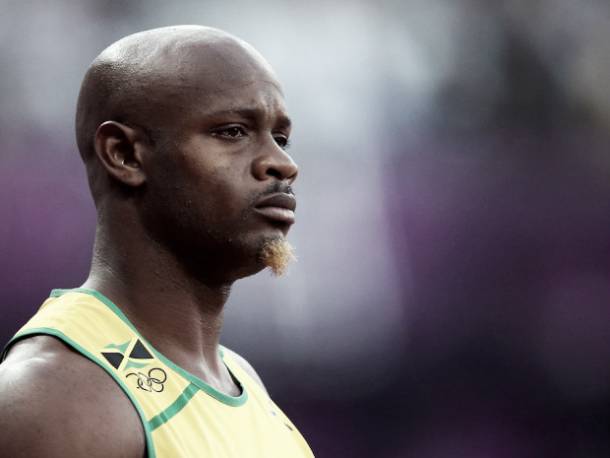Tyson Gay is a former world champion, Asafa Powell also a former world record holder; the fastest kids on the block, before the arrival of a certain Usain Bolt. The reputation of some of the so-called ‘fastest-men-on-Earth’ has been slashed, after the IAAF, the governing body for the sport, has cast its net wider in relation to doping offences. Not since Ben Johnson’s positive test two days after winning the 100 metres at the 1998 Olympics in Seoul, or 2004 champion Justin Gatlin’s ban, has the sport been rocked so much. But the question remains, can sprinting recover from this latest blow?
Both men have directed the blame upon people whom they had not known very well. “Sometimes, a human being just naturally, generally, trusts somebody.” justified Gay. He refused to reveal the identity of the person in his inner circle who has let him down. Powell, on the other hand, has pointed the finger at Christopher Xuereb. Powell had never tested positive before Xuereb joined the set-up, but the Canadian has come out fighting, explaining that it is virtually impossible to “assist some athletes without risk of being made the scapegoat.” It is an easy excuse to hold somebody else accountable, and the fact that Gay has not named a culprit, paired with the fact that Xuereb has come out defending himself, raises questions as to how genuine these mitigations really are. A reputation can be saved by diverting the blame, especially when it is an athlete’s first breach.
The question on every single person’s lips in light of the recent findings is whether Usain Bolt is clean or not. His agent, Ricky Simms, has come out rubbishing the speculation, and Bolt has done his talking on the track, clocking an impressive 9.85 in London after a weak start. However, certain members of the media have pondered; if the ‘best of the rest’ were using performance-enhancing drugs and still could not get near Bolt, surely the six-time Olympic gold-medallist is not fully clean.
This raises an interesting question, one in which comparisons can be made to the infamous Lance Armstrong scandal in cycling. The UCI may have skimmed over the fact that Armstrong was using banned substances for fear of the damage it would do to the public perception of cycling as a whole. Now imagine for one moment that there is a similar situation in athletics; replace the UCI and Lance Armstrong with the IAAF and Usain Bolt. The exposure of Usain Bolt as a cheat would have drastic consequences, not only for sprinting, but for athletics and the Olympic games as a whole. The reputation of the sport has nose-dived over the last twenty years, from Ben Johnson to Marion Jones. One more high-profile scandal could annihilate public interest forever.
Of course, we must take the lengthy Jamaican on his merits. Having never failed a drugs test and broken countless world records, he is the perfect poster-boy for athletics; a naturally gifted athlete. He has smashed records in various disciplines, and the world is awaiting the upcoming World Championships with excitement in the hope that the 100 metre and 200 metre records might again be lowered by the fastest man in the world.
Athletics is in a fragile place right now after the recent findings. The sport’s flagship event, the 100 metres, and shining star, Usain Bolt, are what is keeping the sport alive. This month’s World Championships is where the reputation of the sport can be restored, but sadly, athletics is one failed doping test away from a point of no return.






































